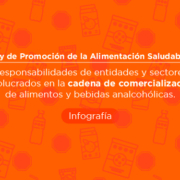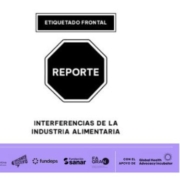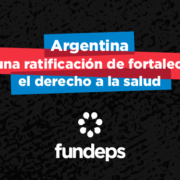We present a proposal to eliminate trans fats in Argentina
From Fundeps, SANAR, FIC Argentina, Fagran and Argentine Consumers we sent a proposal to the National Food Commission (CONAL) for Argentina to move towards a more restrictive regulation of trans fats and that prohibits the use of partially hydrogenated oils.
“Below, we offer a google translate version of the original article in Spanish. This translation may not be accurate but serves as a general presentation of the article. For more accurate information, please switch to the Spanish version of the website. In addition, feel free to directly contact in English the person mentioned at the bottom of this article with regards to this topic”
The different organizations proposed to CONAL to modify article 155 tris of the Argentine Food Code (CAA). Said article currently establishes that:
the content of industrially produced trans fatty acids in food must not exceed: 2% of total fats in vegetable oils and margarines intended for direct consumption and 5% of total fats in other foods, including those that They are used as ingredients and raw materials.
In this sense, we propose that a maximum limit of the content of trans fatty acids (TFA) of industrial production of 2% with respect to total fats in all products be established. Including those that are used as ingredients and / or raw materials, and also prohibit the use of partially hydrogenated oil.
The proposal arises given that the consumption of trans fats is dangerous for health, since it increases the risk of cardiovascular diseases, sudden cardiac death and diabetes mellitus, among other diseases. In other words, the available scientific evidence establishes that these fats are not essential, they are not required for any biological function in the body and they do not have any health benefits.
It is essential to improve regulation, since despite the recent modifications incorporated in article 155 tris of the CAA where it was clarified that the restriction and maximum limits of trans fats include raw materials and ingredients, it continues to be insufficient.
In addition, although the State has worked since 2010 to reduce the presence of trans fatty acids in the supply chain, there is currently an outdated approach to the limits proposed by international expert organizations in the field. An example is the WHO REPLACE (2018) package of measures that aims to eliminate TFA from the food supply and the “Action Plan to eliminate trans-fatty acids from industrial production 2020-2025”, launched in 2020, which seeks to facilitate the implementation of policies and measures at the national level. In both documents, it is recommended to adopt regulatory frameworks to eliminate or reduce the content of TFA to a maximum of 2% of the total fat content in all food products. If this recommendation is coupled with a ban on partially hydrogenated oils (APH), it may have an added effect by allowing enforcement against other sources of trans fatty acids, such as poor quality refined oils.
About trans fats:
Industrial trans fatty acids, known as “trans fats,” are present in a large number of processed foods such as baked goods, baked goods, cookies, and snack foods. These fats are made by the food industry through a process called “hydrogenation”, which transforms liquid vegetable oils into semi-solid fats.
A large body of evidence has shown that increased consumption of trans fats has serious health consequences. According to WHO studies, they are an important factor in the development of cardiovascular diseases and non-communicable diseases worldwide, causing an estimated half a million deaths each year.
More information:
- Proposal
- Trans fats in Argentina: what is the regulation like?
- Grasas trans, más allá de un riesgo para la salud
Contact:
Maga Merlo Vijarra, magamerlov@fundeps.org









